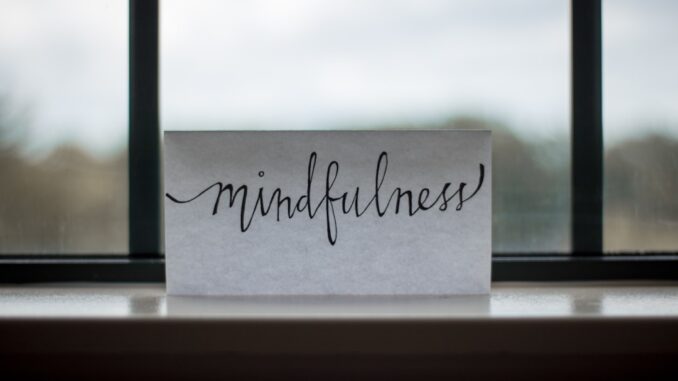
Summary
This article provides a practical guide for recovering addicts to manage stress through actionable steps. It explores various relaxation techniques, including mindfulness, exercise, and support systems, and offers advice on incorporating them into daily routines. This guide emphasizes the importance of stress management in maintaining sobriety and overall well-being.
** Main Story**
Stress is a real beast, especially when you’re navigating recovery. It’s not just an inconvenience; it can actually threaten your sobriety. Learning to manage stress effectively is like building a shield against relapse. It’s about creating a more balanced and, let’s be honest, a much happier life. So, how do we do it? Let’s dive in.
Mindfulness and Meditation: Finding Your Center
Mindfulness is all about being present, like really present, without judging yourself. Meditation? That’s your tool for cultivating mindfulness. You focus on one thing – your breath, a word, a sound. It’s simple, but powerful. I know, I know, it sounds a bit ‘woo-woo’, but trust me, even a few minutes of daily meditation can make a huge difference. It’s like hitting the reset button on your brain, what’s more there are so many apps out there now. Headspace, Calm, you name it. They’re like having a pocket-sized guru to guide you. And don’t underestimate the power of mindful breathing throughout the day. When you feel that familiar wave of stress washing over you, just pause and take a few deep breaths. In… and out… See? Already feeling a bit better, aren’t you?
Exercise and Nature: Moving Towards Serenity
Get moving! Seriously, exercise is a game-changer, it’s a double win because you get fit while you relieve stress. It releases endorphins, those natural mood boosters that make you feel amazing. Find something you genuinely enjoy. Maybe it’s hitting the gym, maybe it’s just a brisk walk in the park; I personally like swimming. But really, anything that gets your heart pumping will work. And here’s a tip: combine exercise with nature. Trust me on this. Studies have shown that spending time outdoors reduces stress hormones. A walk in the woods, gardening, or just sitting by the water can be incredibly restorative. I remember this one time, I was feeling completely overwhelmed and I just drove to the beach, sat there for an hour watching the waves, and it was like the weight of the world lifted off my shoulders, honestly I can’t recommend it enough.
Support Systems and Self-Care: Building a Foundation
Recovery isn’t a solo mission, and a strong support network is crucial. Connect with people who get it – friends, family, support groups, whatever works for you. Sharing your experiences, the good, the bad, and the ugly, can provide comfort and encouragement. Plus, it holds you accountable. And don’t be afraid to seek professional help from a therapist or counselor. They can offer guidance and support tailored to your specific needs, and will give you professional advice. Prioritize self-care too. What makes you happy? What helps you relax? Reading a good book? Listening to music? Taking a long bath? Do it! Self-care isn’t selfish; it’s essential. It replenishes your emotional and mental energy, making you better equipped to handle whatever life throws your way. It’s like putting on your own oxygen mask before assisting others, you’ve gotta do it.
Nutrition and Sleep: Nourishing Body and Mind
What you put into your body matters, so maintaining a healthy diet is non-negotiable, it’s important for recovery, especially the avoidance of mood swings. Focus on nutritious foods – fruits, vegetables, lean protein, whole grains. Limit processed foods, excessive caffeine, and sugary snacks. They might give you a temporary boost, but they’ll ultimately leave you feeling worse. Sleep, too, is a critical piece of the puzzle. Aim for 7-8 hours of quality sleep each night, and establish a relaxing bedtime routine to prepare your body for rest. Think of it as hitting the reset button on your mind and body.
Journaling and Healthy Coping Mechanisms: Processing Emotions
Grab a notebook and start writing. Journaling can be a powerful tool for self-reflection and stress management. It can help you identify your triggers, process your emotions, and gain insights into your thoughts and behaviors. It’s like having a conversation with yourself, but on paper. Develop healthy coping skills for dealing with stress, too. Instead of reaching for that old crutch, explore alternative coping mechanisms like deep breathing exercises, progressive muscle relaxation, or activities like yoga or Tai Chi. There are actually a lot of apps for coping mechanisms as well.
Identifying and Limiting Stressors: Taking Control
What situations, people, or environments trigger your stress or cravings? Once you’ve identified them, find ways to minimize your exposure. This might involve setting boundaries in relationships or avoiding certain social situations, you have to prioritise yourself. And practice time management. Feeling overwhelmed is a huge stressor, so effectively managing your time can help reduce this. Break down tasks into smaller, more manageable chunks, and make sure to schedule in time for rest and relaxation.
Seeking Professional Help: When to Reach Out
If stress becomes too much to handle on your own, please, please seek professional help. There’s no shame in it. A therapist or counselor specializing in addiction recovery can provide additional support and coping strategies. Recovery is a journey, not a destination, and seeking help is a sign of strength, not weakness. By implementing these stress management techniques, you can create a foundation for lasting sobriety and build a healthier, more fulfilling life. You’ve got this.


Be the first to comment